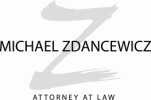 Default risk, also called insolvency risk, refers to a situation in which a person or company is potentially unable to make payments on their financial commitments. Nearly all lenders, investors and creditors must take default risk into account before offering mortgages, choosing investment vehicles, and when evaluating potential borrowers/debtors.
Default risk, also called insolvency risk, refers to a situation in which a person or company is potentially unable to make payments on their financial commitments. Nearly all lenders, investors and creditors must take default risk into account before offering mortgages, choosing investment vehicles, and when evaluating potential borrowers/debtors.
To gauge an individual or business’s level of default risk, lender/creditors often use tools such as consumer credit ratings (FICO scores). Personal relationships may influence a lender/creditor as well in assessing default risk. That being said, though, generally interest rates offered will correspond to the borrower/debtor’s level of risk – often, high risk means higher rates.
Evaluating default risk in regards to an entity such as a government or city may also affect the actions of entities not directly involved in a particular transaction. For example, laws concerning credit may become more stringent; lenders may tighten their requirements; and certain types of investments, such as bonds, may fall from favor because of the perceived risk of default. Conversely, a borrower may qualify as an excellent, low-risk candidate at the time of the transaction, and later encounter financial difficulties or even file for bankruptcy.
Working with an experienced, knowledgeable Arizona creditor’s attorney can help tremendously when evaluating a bankruptcy filing. If you would like more information about default risk, creditors’ rights, or if you need assistance from an attorney, contact Windtberg & Zdancewicz to schedule an initial consultation.
The attorneys at Windtberg & Zdancewicz, PLC, provide clients with experienced legal representation in all collection matters. We are experienced in creditor’s rights including garnishments, charging orders, attachment, property execution, trustee’s sales, foreclosures, judgments, judgment collection, domestication of foreign judgments, and creditor’s issues in bankruptcy cases. If you need assistance with your collection matters, please contact us at (480) 584-5660.
